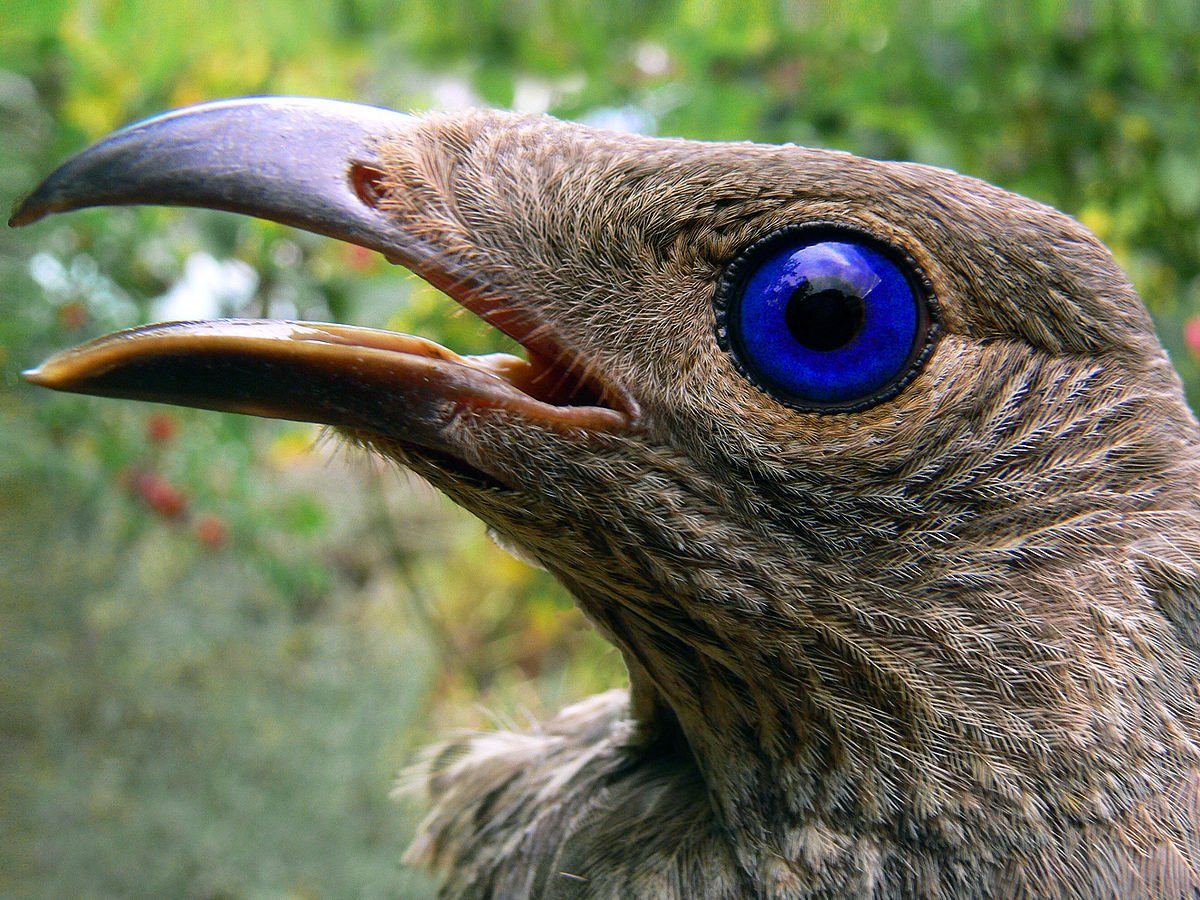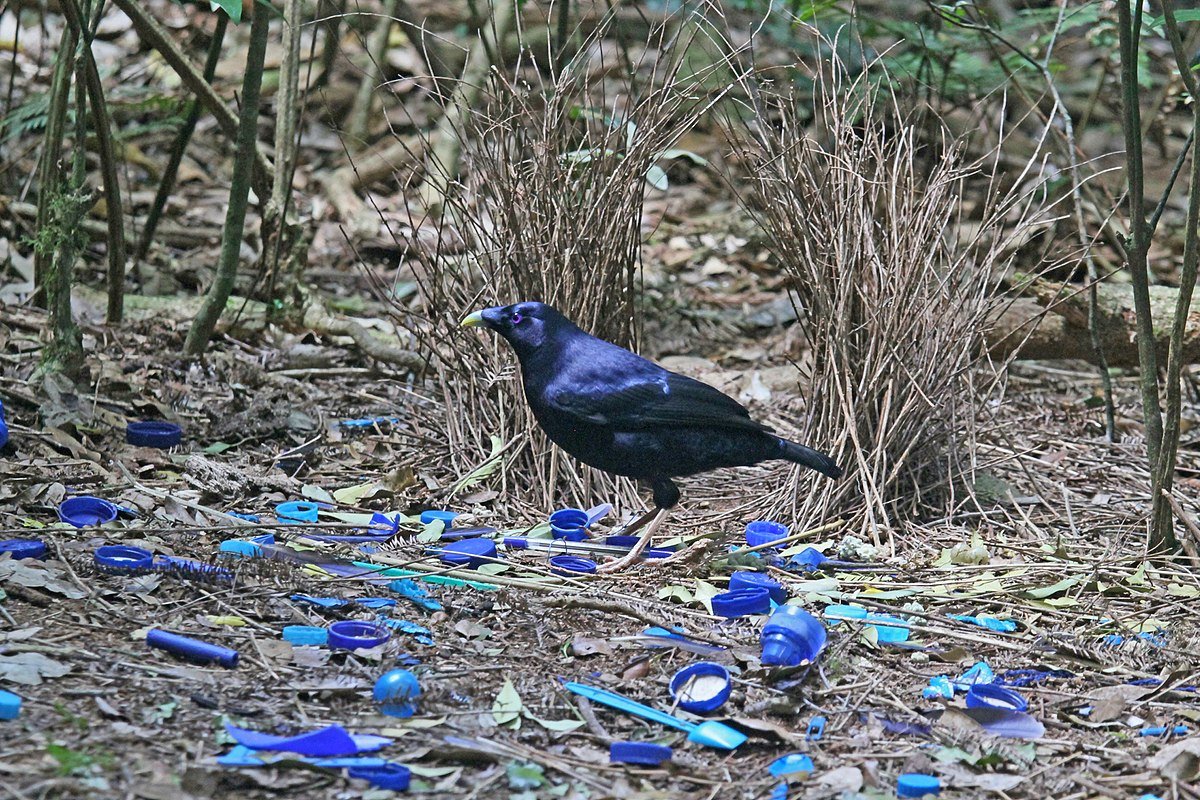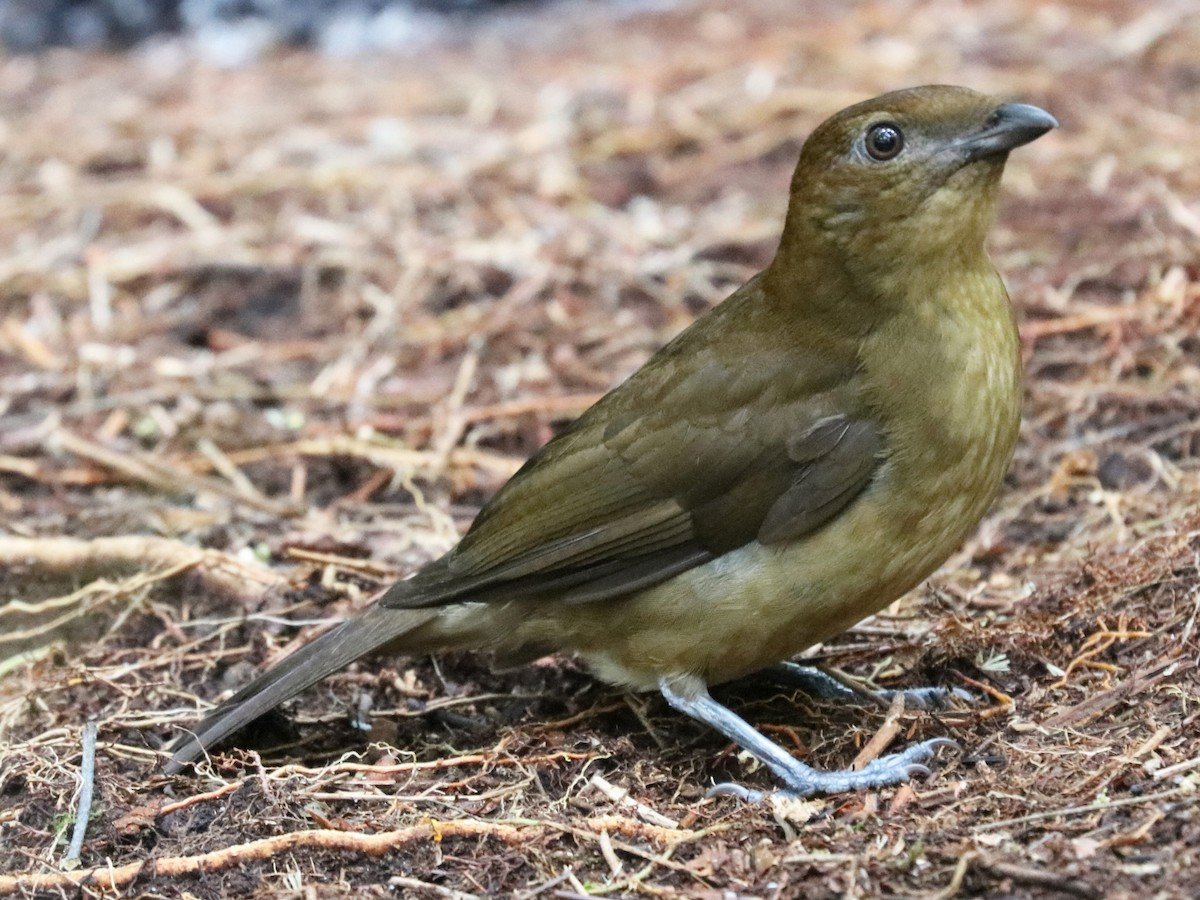Sophia Brueckner, Bowerbirds: Optimization, The Evolution of Aesthetics, and Art.
With special guest: Professor Gail Patricelli from the Department of Evolution and Ecology, University of California
February 3 20234, 16:00 BST/ 15:00 GMT/ 10:00 EDT/ 07:00 PST (4pm BST/ 3pm GMT / 10am EDT/ 7am PST)
Bowerbirds: Optimization, The Evolution of Aesthetics, and Art.
Male bowerbirds attract female mates by constructing an elaborate bower and arranging colored objects around it. Though there are similarities in their process, different birds choose and arrange objects in surprisingly different ways. Some arrange objects into piles and some might create gradients. Some might only collect blue objects and some will use pops of red and orange. The compositions they produce are attractive to humans as well as female bowerbirds. Male bowerbirds learn from each other, steal from each other's bowers, and try to sabotage each other. Their skills improve over time, and the bowers of older bowerbirds can become more attractive to female bowerbirds than those of younger ones. Their creations transcend easily measurable metrics like efficiency, quantity, and strength. Their curation/composition process cannot be easily translated into an algorithm.
Together with Professor Gail, these are some of the thought-provoking questions that will be explored in Sophia's presentation: “Does this mean bowerbirds make art? Is it possible for a human or a computer to mimic their process? How does the existence of “non-human artists” such as bowerbirds change our understanding of computers making art, such as with generative AI?”.
About the speaker and guest
Sophia Brueckner is an artist/engineer who researches how technology shapes us. As a Google software engineer, she designed products for millions. At the Rhode Island School of Design and the MIT Media Lab, she researched the empowering and controlling aspects of technology.
Brueckner's studio, Tomorrownaut, prototypes and encourages alternative futures by challenging limited visions of technology and embodying an attitude of 'critical optimism.' Using coding, digital fabrication, and electronics, she creates both physical and digital artifacts. Since 2011, Brueckner has taught Sci-Fi Prototyping at MIT, RISD, and the University of Michigan, blending science fiction, extrapolative thinking, prototyping, and ethics.
Brueckner was a resident artist at Autodesk Pier 9 and Nokia Bell Labs. She is an associate professor at the Stamps School of Art and Design and directs the Center for Ethics, Society, and Computing at the University of Michigan.
Gail Patricelli, is a professor of Evolution and Ecology at the University of California, Davis. She received her Bachelor’s degree in Biology and Art from Whitman College and PhD from the University of Maryland, and was a postdoctoral fellow at the Cornell University Lab of Ornithology. Professor Patricelli and members of her lab study the conservation of birds and the evolution of bird breeding behaviors. The Patricelli lab has pioneered the use of new technology such as biomimetic robotics, microphone arrays, acoustic monitoring, and remote telemetry into the study of animal behaviors in the wild, including studies of courtship interactions in bowerbirds and grouse.






